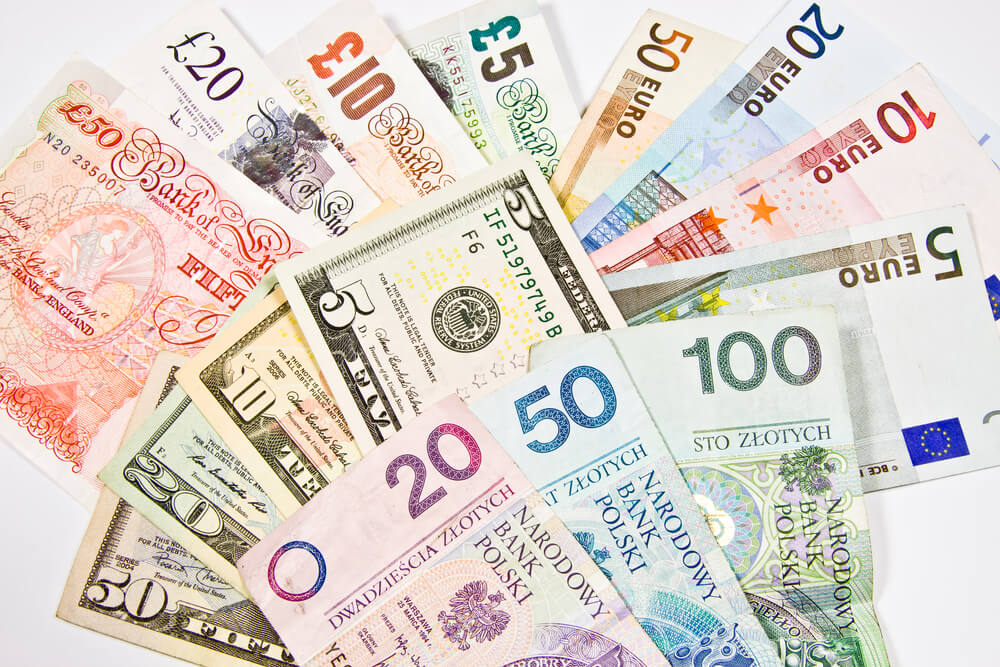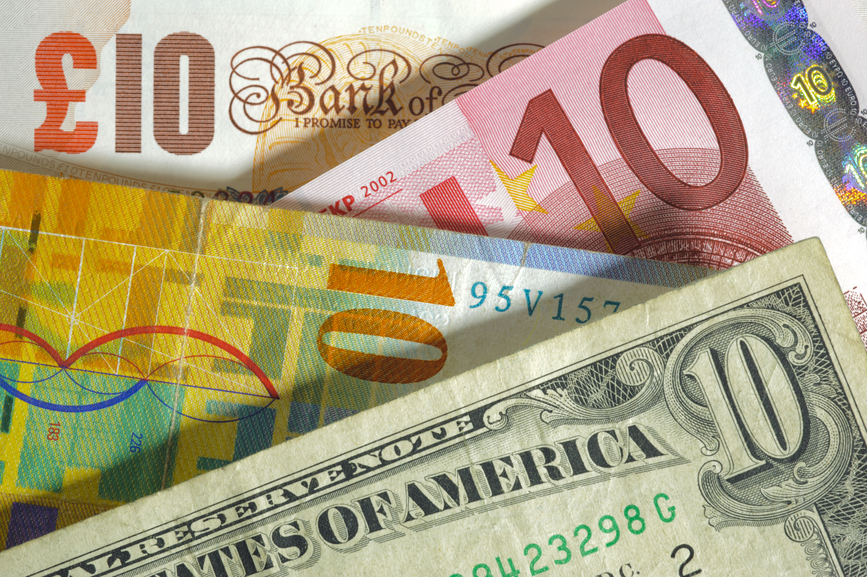[ad_1]
Learn how currency exchange works and the impact of fixed exchange rates vs flexible exchange rates on the economy of the country.
Understanding How Currency Exchange Works
Introduction to currency exchange and how it works:

The business which has an authorized license to exchange one currency with another for its customers is known as Currency Exchange. Currency exchange of physical money (Paper notes & coins) is usually done over the teller’s counter of such business offices, we can found currency exchange offices in different forms and locations. It may be a small business operating out of a single office, or it may be a large business chain operating at different cities and airports, or it may be private, nationalize, or international banks.
The currency exchange can be both physical and online, which allows you to exchange one country’s currency for another by carrying out buy and sell transactions. Let us see the below examples of how currency exchange works, if you want to buy US Dollars against Indian Rupees, you need to bring Indian Rupees (Cash, Cheque, or Bank Card) to the currency exchange store to buy US Dollars. The amount you would be able to purchase would depend on the exchange rate. The market determines the currency value, which is known as an exchange rate, it tells you how much your currency is worth in foreign currency.
Two different types of Exchange Rates: Floating & Fixed Exchange Rate
There are broadly two types of exchange rates: Floating and Fixed. Floating/Flexible exchange rate changes constantly, while fixed exchange rates rarely change.
Floating/Flexible exchange rate:
Currency exchange rates are mostly determined by the Forex (Foreign Exchange) market. Such exchange rates are known as floating/flexible exchange rates. It fluctuates on a moment-by-moment basis. Currencies like Canadian dollars, European Euros, British pounds, and Japanese Yen uses floating exchange rates. The government and central bank of these countries do not actively intervene to keep the exchange rate fixed. Their policies can influence the rates over the longer term but cannot regulate the exchange rates.
Fixed Exchange rate:
Other currencies, like the Gulf –Saudi Arabian riyal, UAE dirham, Kuwaiti dinar, rarely change. That is because those countries use a fixed exchange rate that only changes when the government does so. These fixed currency rates are usually pegged to US Dollars. Their central banks have enough reserves in the form of foreign currency to control their currency worth. To keep the fixed exchange rate, the central bank holds US dollars. If the value of the local currency falls, the bank sells its US dollars for local currency. That reduces the supply in the marketplace, appreciating its currency value.
Floating vs. Fixed Exchange Rates

A fixed exchange rate is set firmly by the monetary authority with respect to a foreign currency on the other hand, a floating exchange rate is determined in foreign exchange markets depending on demand and supply, and it generally fluctuates constantly. Extensively when the government decides the exchange rate, it is called a fixed exchange rate, whereas when market influences determine the exchange rate, it is called flexible or floating exchange rates.
Both Fixed and Floating exchange rates have their own merits as mention below:
| Fixed Exchange Rates | Floating or Flexible Exchange Rates |
| It ensures stability in exchange rate which encourages foreign trade. | Deficit or surplus in Balance of Payment is automatically corrected |
| A fixed exchange rate ensures that major economic disturbances do not occur. | There is no need for the government to hold any foreign exchange reserve |
| It prevents capital outflow & speculation in foreign exchange market. | It helps in optimum resource allocation |
| Fixed exchange rates are more conducive to expansion of world trade because it prevents risk and uncertainty in transactions | It frees the government from the problem of balance of payment. |
Factors that influence the exchange rate: Supply and Demand, Country’s Economic Growth, Interest Rates
There are many factors that influence exchange rate but the below three factors are most important which has direct impact on exchange rates namely Interest rates, Demand and Supply & Country’s economic growth.
Interest rate:
The interest rate paid by a country’s central bank has a big impact. A higher interest rate offers lenders in an economy a higher return relative to other countries. Therefore, it attracts foreign capital and causes the exchange rate to rise. The opposite relationship exists for decreasing interest rates, i.e., lower interest rates tend to decrease exchange rates.
Supply and Demand:
The money supply is created by the country’s central bank, if the government prints too much currency, then there is too much currency chasing too few goods. Currency holders will bid up the prices of goods and services, which will create inflation. So some of the investors will invest overseas where there is nil or zero inflation, but they will find no demand for their currency since there so much of it. That is why inflation can push the value of currency down. The economics of supply and demand speak that when demand is high, prices rise and the currency appreciates in value. On the other hand, if imports are more than a country’s exports, there is relatively less demand for its currency, so prices should decline. In such cases currency, depreciates or loses value.
Country’s economic growth:
The currency exchange rate is determined independently to the economic growth rate. The exchange rate impact the economic growth of a country. And the economic growth rate can influence the exchange rate. Foreign investors inevitable seek out stable countries with strong economic performance. A country’s economic growth and financial stability impacts its currency exchange rates. If the country has strong, growing and stable economy will attract investors to buy its goods and services. The investors also take a call depending on the financial stability of a country. If the financial stability looks bad, they will refrain from investing. A country with positive ascribes will draw investment funds away from other countries perceived to have more political and economic risk. Political turmoil, for e.g., can cause the loss of confidence in a currency and a movement of capital to the currencies of more stable countries.
How exchange rates affect you?
Exchange rate affects in many ways when it comes to personal finances. There are lots of examples to prove the same.
In this era of globalization, goods of other countries are commonly used, or sometimes even more commonly, than those produced domestically. Exchange rates have a significant impact on the prices you pay for imported goods. A weaker domestic currency means that you need to pay more for foreign goods and a stronger domestic currency will reduce the prices of foreign goods.
Another example is, if you have planned to travel abroad to another country that uses a different currency, you must also plan for exchange rate values. When the Indian Rupees are strong, you can buy more foreign exchange and enjoy a more affordable trip. If the Indian Rupees are weak, your trip will cost more because you cannot buy much foreign currency. Since the exchange rate fluctuates and varies, you might find the cost of your trip has changed since you started planning it. This is how the exchange rate affects your finances. In short, when the exchange rate changes, the prices of imported goods will change in value, including domestic products that rely on imported parts and raw materials. The exchange rates also impact investment performance, influence the job market and real estate sector too, all these will directly or indirectly affect a common man.
[ad_2]
Source link